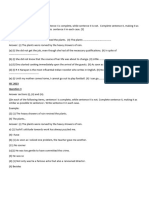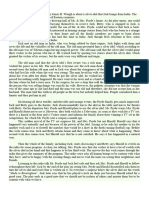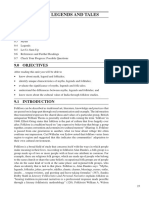100% found this document useful (2 votes)
4K views11 pagesMacbeth Questions and Answers
Macbeth
Uploaded by
duttasubham9089Copyright
© © All Rights Reserved
We take content rights seriously. If you suspect this is your content, claim it here.
Available Formats
Download as DOCX, PDF, TXT or read online on Scribd
100% found this document useful (2 votes)
4K views11 pagesMacbeth Questions and Answers
Macbeth
Uploaded by
duttasubham9089Copyright
© © All Rights Reserved
We take content rights seriously. If you suspect this is your content, claim it here.
Available Formats
Download as DOCX, PDF, TXT or read online on Scribd
/ 11

























































































